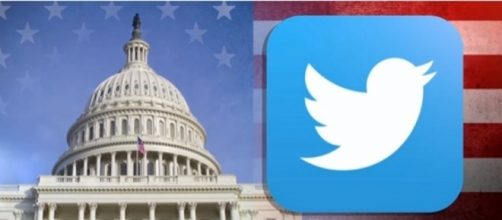Both the House and Senate intelligence committees have been holding closed-door sessions with Facebook and Twitter representatives. Congressional committee members are seeking to discern if anyone in the U.S. assisted Russians in spreading fabricated news stories by targeting specific demographics, Voice of America (VoA) News reported. Twitter representatives met with committee members on Thursday, delving into Russia’s social media intrusions in the United States’ 2016 election.
Twitter and Facebook have been cooperating with investigations by the committees.
Though the meetings have been closed to the public, the intelligence committees plan to hold public hearings. In October, VoA noted, the House panel will hold its hearing with the Senate committee setting its hearing for November. The House and Senate hearings will continue focusing on online tools being used in conjunction with attempts to sway last year’s Presidential election.
Intelligence agencies believe Putin orchestrated campaign, elevating candidate Trump
Earlier this year, U.S. intelligence agencies stated in a report that the agencies believe Russia’s President, Vladimir Putin, is responsible for orchestrating a campaign intended to bolster then-candidate Trump’s odds of attaining election victory over his Democratic challenger, Hillary Clinton.
President Trump had downplayed the agencies’ assessment. In July, he stated that he thought it could have been Russia seeking to increase his chance of winning. At the same time, however, he said it also could have been other countries. He shied from being more specific about which countries he thought could have played a role in influencing the election’s outcome.
President and Facebook CEO volley tweets over social network’s influence in campaign
On Wednesday, President Trump used his Twitter account to intimate that Facebook colluded with television news corporations and newspapers. He suggested that both Facebook and news outlets worked against him during the presidential race.
Mark Zuckerberg, Facebook’s CEO lobbed a tweet back at the President’s theory.
“Trump says Facebook is against him,” VoA reported. Meanwhile, Zuckerberg said, liberals accuse the social media company of helping President Trump get elected.
Zuckerberg summarized that each side is “upset about ideas and content they don’t like.” In Zuckerberg’s view, Facebook is serving as a conduit “for all ideas,” which is reflected in ideas that neither side will like at times.
Zuckerberg also cited a regret he has harbored since the election concluded. He pinpointed that he thought the notion of misinformation on Facebook changing the outcome of the election was “a crazy idea.” He said attributing crazy to the idea was dismissive and that he regrets making the statement. He said the Presidential election process is too important to treat dismissively.
Twitter left Virginia lawmaker feeling ‘deeply’ disappointed after meeting over Russian exploits
Representatives from Twitter also responded to lawmakers on Capitol Hill. Twitter’s representatives said that it suspended roughly 24 accounts that were “potentially linked to Russia,” VoA relayed. Twitter employees also discovered 179 accounts that were related and which violated the company’s terms of service.
Following Twitter’s meeting with House and Senate members, Representative Mark Warner (D-VA) lambasted the information Twitter relayed. Warner expressed that the information was “frankly inadequate on almost every level,” FOX News and CBS reported.
Warner characterized Twitter’s explanations as “deeply disappointing.” Warner stated that Twitter did not seem to appreciate the gravity of Congress investigating into Russia running interference during the election process.
Ranking California lawmaker on House committee said Twitter faces forensic ‘challenges’
Representative Adam Schiff, of California, is the ranking member of the House Permanent Select Committee on Intelligence. Schiff stated that Twitter’s forensic investigation has more challenges than Facebook. He attributed the challenges to Twitter account holders not having to provide comparable background information as Facebook users.
A facet that was not missed on Schiff is how much more is needed to understand the ways Russia might have used Twitter fully. According to CBS, Schiff stated that he doesn’t think the intelligence committees have “more than scratched the surface.”


